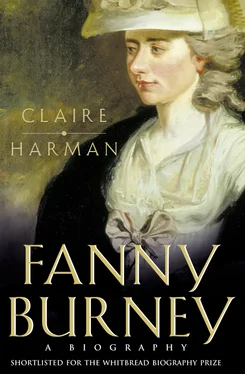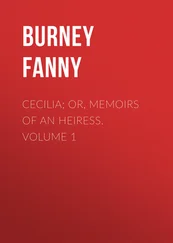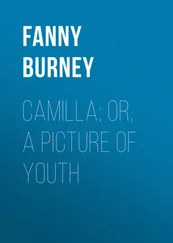1 ...8 9 10 12 13 14 ...31 Mrs Sheeles said later that of the many children she had known, none had displayed so much grief over anything as Fanny Burney did at the death of her mother. She ‘would take no Comfort – & was almost killed with Crying’. 68 Fanny must have been dreading the blow for some time, for in a letter to her father many years later she described how one of the girls at the school (where the little Burneys seem to have been parked fairly often) had complained of her sullenness ‘when I had been dejected by some hints of the illness of my dear mother’. 69 When the ‘hints’ became sad reality, despite weeks, perhaps months, of desperate praying, Fanny was inconsolable. Stuck in Queen Square among strangers, she had not even been able to say goodbye to her mother, and must have heard with a pang of the melancholy deathbed intimacies with which Hetty had been honoured.
Charles Burney was prostrated by the death of his wife, catapulted into an impenetrable world of private grief:
I shut myself up inadmissable & invisible [to] all but relations, without a thought on anything else till after the funeral, and then for a fortnight did nothing but meditate on my misery. I wrote elegyac Verses on her Virtues & Perfection. […] It was painful to me to see any one who knew & admired her as all my acquaintance did. But having my mind occupied by business was a useful dissipation of my sorrow; as it forced me to a temporary inattention to myself and the irreparable loss I had sustained. 70
The younger Burneys, aged ten, seven and four, were not brought home immediately, but had to suffer the exposure of their bereavement among the rich young ladies boarded in Queen Square, one of whom, Lucy Fox-Strangways (the older sister of the girl who had complained about her dullness), compassionately took Fanny under her wing, ‘called me her Child , & took the office of School Mother upon her for me’. 71 When they did go back to Poland Street, the children were neglected by their grief-stricken father. None of them, as Fanny wrote sadly, was ‘of an age to be companionable’, 72 and he was writing to his old friend Dolly Young in desperate terms: ‘From an ambitious, active, enterprizing Being, I am become a torpid drone, a listless, desponding wretch!’ 73 Fanny found this letter (she claimed) when going through her father’s posthumous papers: it was ‘so ill-written and so blotted by his tears, that he must have felt himself obliged to re-write it for the post’. 74 It contains a long and highly emotional account of Esther’s death and his subsequent distress. Perhaps Charles Burney thought better of sending it, or, as Fanny claimed to think, wept so much writing the letter that in order to send it, he had to make a fair copy.
The tears, conversely, might have been those of tender-hearted Dolly Young herself, who died in 1805 and might well have left this memorial of former times to her former friend. But it is odd that the document seems to have been unknown to Fanny when she was weeding her father’s papers in the 1820s and wrote to Hetty complaining how little material she had found ‘relative to our dear & lovely own Mother; […] from whatsoever Cause, he is here laconic almost to silence. 3 or 4 lines include all the history of his admiration & its effects’. 75 Roger Lonsdale has pointed out the inaccuracy of this statement – at least two pages of Dr Burney’s surviving memoirs deal with his first wife – but Fanny’s hyperbole indicates her disappointment at her father’s omission. The letter to Dolly Young only exists in Fanny’s printed version of 1832, but would seem to answer all the shortcomings she noted in Charles Burney’s memoirs, and bears witness to the perfect union which she believed her parents’ marriage to have been. She quotes the whole of it (131 lines rather than ‘3 or 4 lines’), with the prefatory remark that ‘a more touching description of happiness in conjugal life, or of wretchedness in its dissolution, is rarely, perhaps, with equal simplicity of truth, to be found upon record.’ 76 Could she possibly have made this letter up, from the accounts of her mother’s death which she had heard her father and Hetty relate, in order to fill what she felt was a yawning gulf in the record? Could this long and gushing tribute to Esther, suspiciously materialising in her father’s archive and then disappearing again, have’ been another of Fanny’s attempts at impressionistic truth?
According to the letter, the dying Esther had attempted to comfort her eldest daughter by assuring her that they would meet again in the next world:
She told poor Hetty how sweet it would be if she could see her constantly from whence she was going, and begged she would invariably suppose that that would be the case. What a lesson to leave a daughter! – She exhorted her to remember how much her example might influence the poor younger ones; and bid her write little letters, and fancies, to her in the other world, to say how they all went on; adding, that she felt she should surely know something of them. 77
The role that was being passed on to Hetty was a heavy one; Charles Burney, in ‘an unrestrained agony of grief’ at his wife’s bedside, was incapable of giving consolation to anyone. Esther’s concern for Hetty and ‘the poor younger ones’, and her businesslike last day full of instructions and advice to her husband (including her recommendation to him that he marry Dolly Young), indicate how much Charles needed ‘mothering’ too. Mothering their father was what all the Burney daughters ended up doing to a greater or lesser extent all their lives – none more assiduously than Fanny.
But at the time, what must have affected the children most strongly in their mother’s dying words was the comforting assurance that she would be looking down on them ‘from whence she was going’, and the fantastical suggestion that she would be able to receive letters after she was dead. It was a fancy that had been given wide currency by Mrs Elizabeth Rowe’s bestselling book Friendship in Death: Twenty letters from the Dead to the Living , published in 1729 and kept more or less constantly in print until the late nineteenth century, a book which Fanny had certainly read * and which is highly likely to have been introduced into the household by her mother. Mrs Rowe’s book discouraged excessive mourning (which is of course, strictly speaking, an impiety): ‘If you could conceive my Happiness instead of the mournful Solemnity with which you interr’d me’, she imagines a two-year-old boy writing to his bereaved mother, ‘you would have celebrated my Funeral Rites with Songs, and Festivals’. 78 Esther Burney no doubt wanted to blunt her children’s grief in the same way, with the assurance of an afterlife that is suggested by her advice to Hetty to ‘write little letters […] to her in the other world’. But to Fanny, this must have made her unliterary status seem even more of a deprivation than ever, not simply ‘conscious intellectual disgrace’ but a barrier to communion with her dead parent. The ‘angelic’ mother on her ‘sublime’ deathbed had emphasised the value she set on literariness not just by quoting from favourite works (including parts of Gray’s ‘Elegy’) and suggesting poetry-writing as a form of therapy to her husband, but by endorsing the death-defying, almost magical properties of the written word.
After the death of his wife, Charles Burney threw himself into his teaching and often left the children to their own devices. The girls never had a governess; Hetty, who was busy at the harpsichord much of the time, was expected to undertake that function more or less. (It was no accident that both Fanny and Susan became extremely discriminating and appreciative listeners to music.) A succession of housekeepers must have been employed, but none stayed long enough or impressed herself on the children strongly enough to have been kept in the family records, apart from ‘an old Welsh woman’ whose accent amused Mr Burney. 79 It was a melancholy and lonely time for Fanny, who went to bed every night praying ‘for my dear Mamma, & that I might be good enough to join her’. 80
Читать дальше












